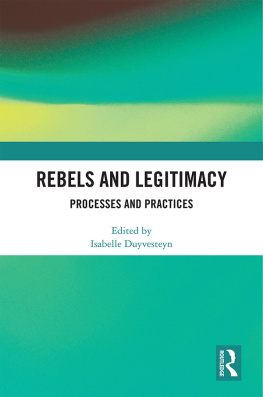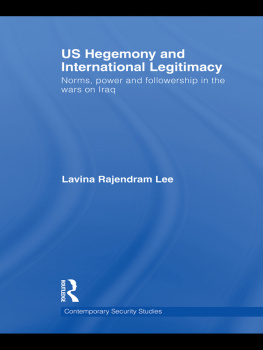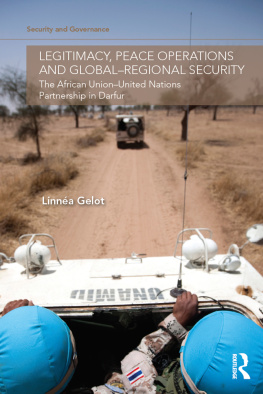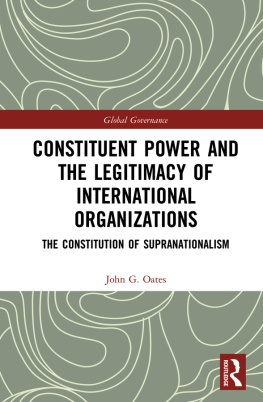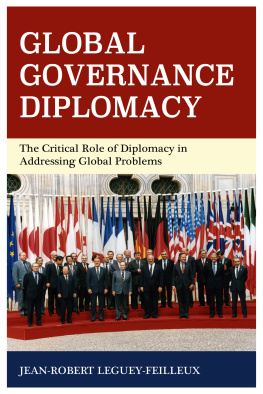The Power of the G20
Can the power of the G20 be legitimate? This book examines the politics surrounding the G20s efforts to act effectively and legitimately and the problems and challenges involved in this activity.
Developing a critical constructivist conceptualisation of the G20, the book considers holistically and practically the ways that the G20 develops various forms of power and influence and acts as an apex form of global governance that seeks to be an overall coordinating forum to address global problems. Assessing how debates about the legitimacy of the G20 shaped its operation, Slaughter argues that the G20s power can be legitimate despite a range of considerable challenges and limits. The book also explores what measures the G20 could take to be more legitimate in the future.
Offering a direct and accessible consideration of the politics of legitimacy with respect to the G20, this book will be of interest to those attempting to understand and analyse the G20 as well as to scholars of IR theory, global political economy, global policy, diplomacy and globalisation.
Steven Slaughter is an Associate Professor in International Relations at Deakin University, Melbourne, Australia. His main publications are The G20 and International Relations Theory: Perspectives on Global Summitry (solo edited, 2019), Global Democratic Theory: A Critical Introduction (authored with D. Bray, 2015), Democracy and Crisis: Democratising Governance in the Twenty-First Century (co-edited with B. Isakhan, 2014), Globalisation and Citizenship: The Transnational Challenge (co-edited with Wayne Hudson, 2007) and Liberty Beyond Neo-liberalism: A Republican Critique of Liberal Governance in a Globalising Age (2005). He has authored more than 30 articles and chapters in journals such as the Review of International Studies, Global Policy, Global Constitutionalism and Global Summitry. His research interests focus on globalisation and global governance, with a particular interest in political theory, transnational activism and the G20.
Global Governance
Series Editor: John J. Kirton
University of Toronto, Canada
Global governance is growing rapidly to meet the compounding challenges of a globalized 21st-century world. Many issues once dealt with largely at the local, national or regional level are now going global, in the economic, social and political-security domains. In response, new and renewed intergovernmental institutions are arising and adapting, multilevel governance is expanding, and sub-national actors are playing a greater role, and create complex combinations and private-partnerships to this end.
This series focuses on the new dynamics of global governance in the 21st century by:
- Addressing the changes in the structure, operation and impact of individual intergovernmental institutions, above all their innovative responses to the growing global challenges they confront.
- Exploring how they affect, are affected by and relate to non-state actors of global relevance and reach.
- Examining the processes of cooperation, competition and convergence among international institutions and the many global governance gaps where global challenges such as terrorism, transnational crime and energy do not confront powerful international institutions devoted to their control.
- Dealing with how global institutions govern the links among key issues such as climate change and health.
In all cases, it focuses on the central questions of how global governance institutions and processes generate the effective, legitimate, accountable results required to govern todays interconnected, complex, uncertain and crisis-ridden world.
The Politics of Global Tax Governance
Henning Schmidtke
The Power of the G20
The Politics of Legitimacy in Global Governance
Steven Slaughter
For more information about this series, please visit: www.routledge.com/Global-Governance/book-series/ASHSER1420
First published 2020
by Routledge
2 Park Square, Milton Park, Abingdon, Oxon OX14 4RN
and by Routledge
52 Vanderbilt Avenue, New York, NY 10017
Routledge is an imprint of the Taylor & Francis Group, an informa business
2020 Steven Slaughter
The right of Steven Slaughter to be identified as author of this work has been asserted by him in accordance with sections 77 and 78 of the Copyright, Designs and Patents Act 1988.
All rights reserved. No part of this book may be reprinted or reproduced or utilised in any form or by any electronic, mechanical, or other means, now known or hereafter invented, including photocopying and recording, or in any information storage or retrieval system, without permission in writing from the publishers.
Trademark notice: Product or corporate names may be trademarks or registered trademarks, and are used only for identification and explanation without intent to infringe.
British Library Cataloguing-in-Publication Data
A catalogue record for this book is available from the British Library
Library of Congress Cataloging-in-Publication Data
A catalog record for this book has been requested
ISBN: 978-0-367-15174-4 (hbk)
ISBN: 978-0-429-05546-1 (ebk)
Typeset in Times New Roman
by Apex CoVantage, LLC
To many people, the title of this book is an oxymoron. Given the high-profile shortcomings of the G20, the idea that it has any form of power or influence seems improbable. However, this book seeks to develop a nuanced account of the forms of power involved in the G20 process since 2008. Writing this book was motivated by the desire to combine theoretical reflection with a practical understanding of what sort of power the G20 has with respect to the operation of contemporary global policy-making. Despite enormous challenges and prominent shortcomings with regards to being effective, the informal role of the G20 is potentially important, as it continues to evolve despite these problems. The book considers the legitimacy of the G20, not as an academic novelty but as a core part of the actual operation and influence of the G20. The activity undertaken by the G20 to legitimate its existence is important to its future effectiveness and to efforts to improve its operation and, hopefully, provide support to efforts to help stabilise globalisation. I hope this book sheds some light on the power and the potential of the G20. I thank Robert Sorsby from Routledge and John Kirton as the series editor for their initial interest in this book.
This book has been long in the gestation. I need to acknowledge the use of the text from three previously published articles in this book:
Debating the International Legitimacy of the G20: Global Policymaking and Contemporary International Society Global Policy Volume 4, Issue 1, 2013: 4352. This paper forms the basis of .
The G20s Role in Legitimating Global Capitalism: Beyond Crisis Diplomacy? Contemporary Politics Volume 21, Issue 4, 2015: 384398. This paper forms the basis of .
The G20 and Global Justice: The Potential of Transnational Deliberative Democratic Theory Global Society , Volume 31, Issue 4, 2017: 460478. This paper forms the basis of .
Although these articles have all been significantly elaborated and revised for these chapters, I thank the editors and referees from these journals.
I also would like to thank John Bourdouvalis and Andrew Schapper for their help with research assistance at various points and Jenny Lucy for help with editing the final draft. I thank Deakin University for providing research leave that was used to write this book, and thank my colleagues David Hundt and Chengxin Pan who helped cover some of my teaching and service roles while I was on leave.


